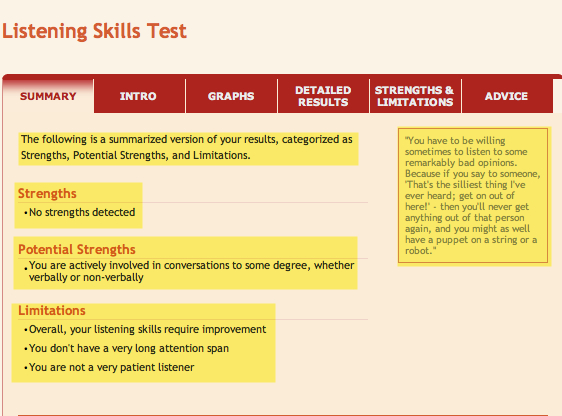Good body language is the underestimated art of using your body to enhance your message. Whether you are talking to one or one thousand, your body language can support or deduct from your message. Like a book being read aloud, your audience can hear your unspoken words via your body language.

Here is a question for you. Who would you select for a job?
A. A person who slouches while giving a presentation, speaks timidly and looks down to the ground when they are approached?
Or
B. A person who stands up tall, looks at you in the eye when talking to you and speaks loudly and clearly?
If you chose B, then you are in the majority. Most people would pick the later candidate because of the effective body language.
Good communication
While you may have thought that what you say with words matters, there is a substantial part of your intention that remains unsaid but is spoken without words. Some have said that up to 53 to 93% of all communication is exchanged through non verbal cues. I am not going to argue about percentages. However, I can assure you that those who have mastered the art of deliberately using your body during communication get ahead and remain ahead. Excellent communication skills which includes body language is essential for effective leadership.
Importance of body language
Your body language can betray your true intentions. However, you can also use you body as a means of making more impact with your message. Let me show you how you can do this.
5 simple tips for using your body language to communicate better.
#1. Smile more
Something as simple as a smile can improve your own mood and make you get along better with the people around you. When you smile, your brain and nervous system adapts your emotional state to mirror your physical state, thus putting you in a better mood.
Your smile will communicate the feeling that you are more approachable, cooperative and trustworthy. Others are encouraged to smile back at you and there facial expression will trigger a positive feeling towards you.
#2. Hand gestures
The parts of the brain that you use for hand gestures are the same ones used for speech. By using hand gestures while speaking, you stimulate the parts of the brain used for speech and get it more active. Research has shown that while using physical hand gestures, people get clearer thoughts and their verbal content improves. In other words, by using your hands, you not only get your message through nonverbally, but you also become a better speaker.
#3. Get people to like you by mirroring them
When people copy your body language, they are non verbally saying that they like you or agree with you. By mirroring others body language, you can make the other person feel better understood and accepted. This helps to build a better relationship.
#4. Boost your confidence with power poses
Research has shown that holding you body in a “power poses” such as leaning back with your hands behind your head can have a major effect on your hormones and behaviour. Holding your body in power poses can stimulate testosterone which is a hormone linked to power and dominance. Not only that, but this power positions will also lower your level of cortisol, a stress hormone. These hormonal changes have been linked to better performance and more confident and assertive behaviour. In addition to you feeling better about yourself, you will have a bigger impact with what you are saying. This is because it has been found that people are influenced by how you feel about yourself.
#5. Maintain eye contact
Eye contact is an important part of communicating your message effectively. Eye contact makes the other person feel special. They get the feeling that you are talking directly to them and as such will give you their attention.
When I can see your eyes, I know that you have nothing to hide and so I can trust you, like you and I am more likely to be influenced by you. You will however need to consider the cultural setting in which you are as it is unacceptable in some cultures to look directly at people.
Why not try to one of these simple tips and see if it makes any difference in you getting your message across. Leave a comment below with your feedback.












